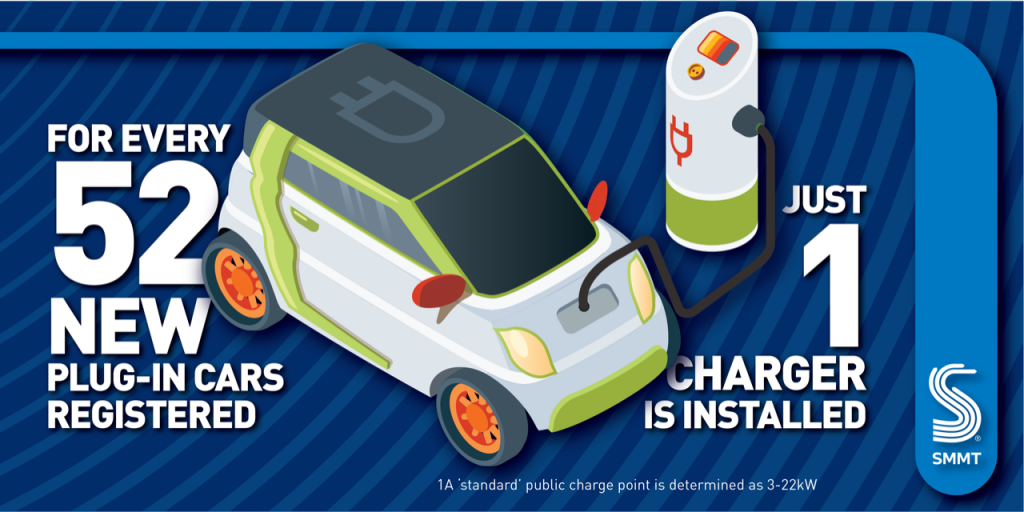New research reveals that the ratio of vehicle charge points to plug-in cars fell by 31% during 2020, according to the Society of Motor Manufacturers and Traders (SMMT).
At the end of 2019, 11 BEVs and PHEVs shared a public charging point on average, but by the end of 2020, that ratio had dropped to one charger for every 16 plug-ins.
While many people making the switch to an EV will be able to charge their car at home, on a driveway or designated parking bay, there are still those that rely on on-street parking, and so charging infrastructure has to cater for all needs if we are to achieve net-zero.
This year, plug-in vehicles are surging in popularity and now account for around one in every six new cars registered. Yet between January and September 2021, just one new standard charger is being installed for every 52 new EVs joining the road.
To keep these cars moving requires public charging infrastructure to keep up with the pace of EV uptake but the SMMT’s data shows that the public charging rollout is lagging behind.
Britain’s ratio of plug-in vehicles on the road to standard public charge points is now one of the worst among the top 10 global electric vehicle markets at 16:1 in 2020. Some of the countries offering EV drivers better charging coverage, include South Korea (3:1), the Netherlands (5:1), China (9:1), France (10:1), Belgium and Japan (both 13:1).
There are also regional disparities in the number of charge points around the UK. London has the best ratio at 10:1 while the east of England has the worst at 49:1.
The SMMT says that “if not addressed, these disparities will hamstring vast sections of the country in their ability to deliver zero emission motoring with all the air quality and carbon saving benefits this delivers, not to mention the benefits drivers can enjoy via lower EV running costs.”
While the UK government has pledged £620m of zero-emission grants in its Net Zero strategy, and the Government’s Rapid Charging Fund is investing £950m to expand the number of rapid and ultra-rapid charge points, this is insufficient to keep up with consumer demand.
Mike Hawes, SMMT chief executive, said: “Recent Government funding for infrastructure was welcome but more private sector investment in public charge points is needed across the country. The UK therefore needs a framework of regulation that makes it easier to fund, build and operate electric vehicle charging infrastructure. Consequently, we need commensurate and binding targets for charge point rollout and reliability so that all those without a driveway or designated parking can be confident of finding a convenient charger, and one that works.”
